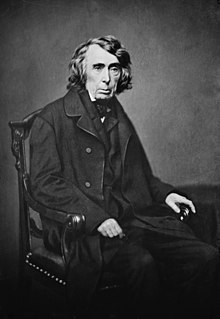A Quote by Alexander Hamilton
But as the plan of the convention aims only at a partial union or consolidation, the State governments would clearly retain all the rights of sovereignty which they before had, and which were not, by that act, EXCLUSIVELY delegated to the United States.
Related Quotes
[Before the Civil Rights Act of 1964], many governments in southern states forced people to segregate by race. Civil rights advocates fought to repeal these state laws, but failed. So they appealed to the federal government, which responded with the Civil Rights Act of 1964. But this federal law didn't simply repeal state laws compelling segregation. It also prohibited voluntary segregation. What had been mandatory became forbidden. Neither before nor after the Civil Rights Act were people free to make their own decisions about who they associated with.
In
the creation of the federal government, the states exercised the
highest act of sovereignty, and they may, if they please, repeat the
proof of their sovereignty, by its annihilation. But the union possesses
no innate sovereignty, like the states; it was not self-constitute d; it
is conventional, and of course subordinate to the sovereignties by
which it was formed.
Now therefore, be it Resolved by the Fiftieth Annual Convention of the Veterans of Foreign Wars of the United States, That we hereby declare that we are unalterably opposed to any program which would entail the surrender of any part of the sovereignty of the United States of America in favor of a world government.
I consider the government of the United States as interdicted by the Constitution from intermeddling with religious institutions, their doctrines, discipline, or exercises. This results not only from the provision that no law shall be made respecting the establishment or free exercise of religion, but from that also which reserves to the States the powers not delegated to the United States. Certainly, no power to prescribe any religious exercise or to assume authority in any religious discipline has been delegated to the General Government. It must then rest with the States.
Slavery existed before the formation of this Union. It derived from the Constitution that recognition which it would not have enjoyed without the confederation. If the States had not united together, there would have been no obligation on adjoining States to regard any species of property unknown to themselves.
I believe that during the intervention of NATO in Kosovo there is an element nobody can question: the air attacks, the bombs, are not caused by a material interest. Their character is exclusively humanitarian: What is at stake here are the principles, human rights which have priority above state sovereignty. This makes it legitimate to attack the Yugoslav Federation, although without the United Nations mandate.
The sovereignty of the States is the language of the Confederacy and not the language of the Constitution. The latter contains the emphatic words. This Constitution and the laws of the United States which shall be made in pursuance thereof and all treaties made or which shall be made under the authority of the United States, shall be the supreme law of the land and the judges in every State shall be bound thereby, anything in the constitution or laws of any State to the contrary notwithstanding
The Constitution does not protect the sovereignty of States for the benefit of the States or state governments as abstract political entities, or even for the benefit of the public officials governing the States. To the contrary, the Constitution divides authority between federal and state governments for the protection of individuals.
A share in the sovereignty of the state, which is exercised by the citizens at large, in voting at elections is one of the most important rights of the subject, and in a republic ought to stand foremost in the estimation of the law...That portion of the sovereignty, to which each individual is entitled, can never be too highly prized. It is that for which we have fought and bled.
The question before us is, whether people of African ancestry compose a portion of this people, and are constituent members of this sovereignty? We think they are not, and that they are not included, and were not intended to be included, under the word 'citizens' in the Constitution, and can therefore claim none of the rights and privileges which that instrument provides for and secures to citizens of the United States.






























